Breaking Down President Biden’s New Executive Order on Abortion Rights
White House spokesperson Jen Klein talks to Marie Claire about what the document might mean for women in real-life settings.
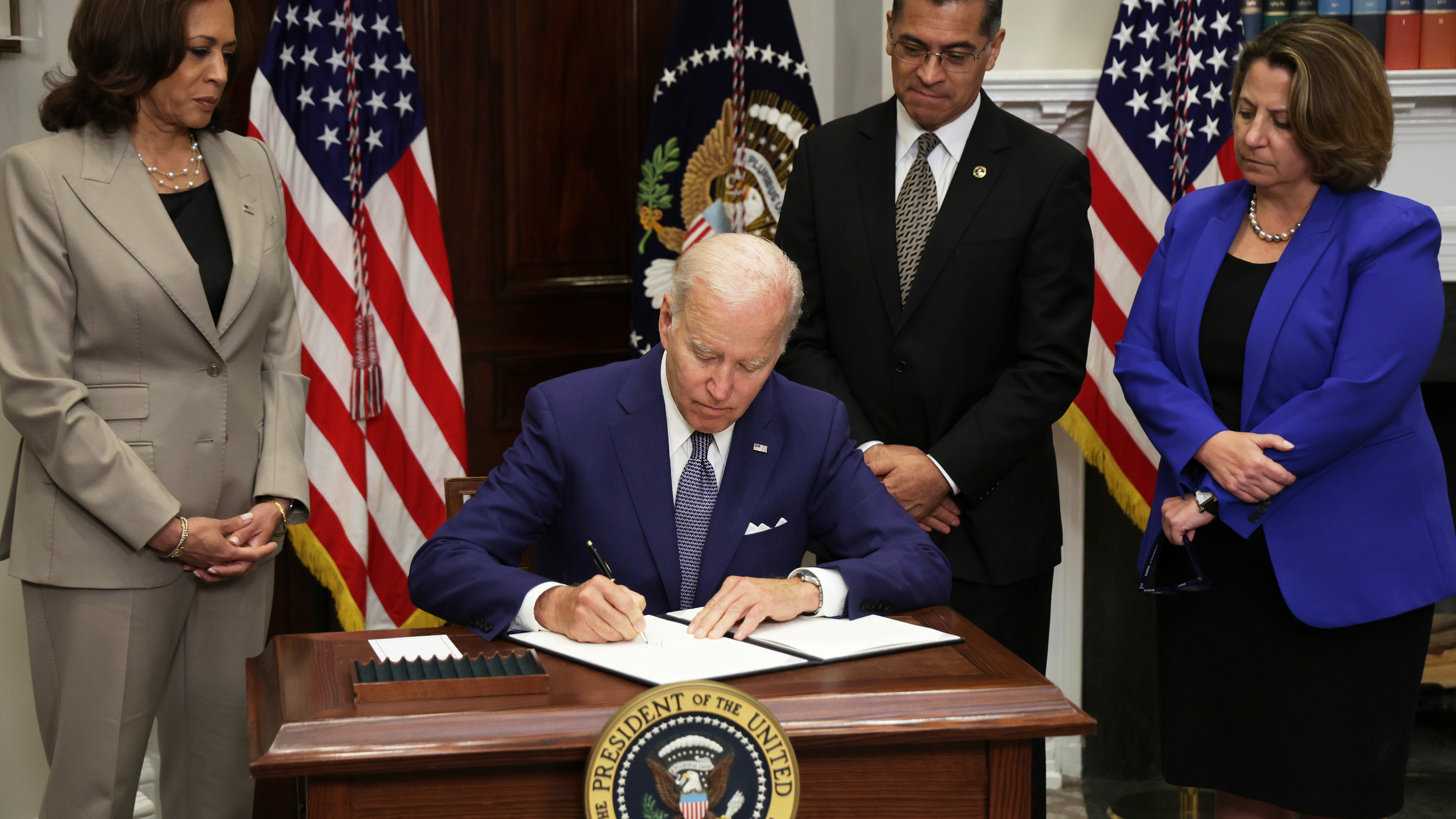

President Biden signed an executive order today designed to protect access to medication abortion and contraception. The president has been under pressure from reproductive justice advocates and other Democrats who have criticized him for not taking more action after the Supreme Court overturned Roe v. Wade on June 24.
White House Gender Policy Director Jen Klein tells Marie Claire that the Biden administration has had dozens of meetings with multiple stakeholders to talk about reproductive rights in the last few weeks. The administration has met with doctors, healthcare providers, privacy experts, advocates, government officials, Planned Parenthood, and independent clinics. When asked if Biden has met recently with people who have had abortions to hear their stories, Klein said he has not, but that people on his staff (including Klein herself) have.
“We are being incredibly careful and analyzing every option,” says Klein. “We run down every option. The fact is there literally has not been anything that has been proposed by an advocate or a member of Congress that we haven’t considered.”
Before signing the executive order, Biden called the Supreme Court’s decision “terrible” and “extreme” and reiterated that people need to “vote, vote, vote, vote.” His order directs his secretary of health and human services (HHS), Xavier Becerra, to come back in 30 days with steps that can be taken to ensure access to medication abortion, contraception, and emergency medical care. The executive order touches on a need for additional HIPAA guidance and better patient protections, and seeks to convene volunteer lawyers to represent “patients, providers, and third parties lawfully seeking or offering reproductive health care services.”
The president also called for an interagency Task Force on Reproductive Health Care Access. Biden’s order asks the chair of the Federal Trade Commission to consider how to protect consumers’ privacy when seeking reproductive health care services.
As reproductive justice advocates wait to see how this executive order will play out, specifically, frustration persists for some Democrats who argue more needs to be done—in particular for pregnant people seeking abortions who can’t travel and live in states where the procedure is banned or extremely restricted.
Responding to Marie Claire's questions about what support is being considered for people who can’t travel for financial reasons, Klein says: “That is mostly being considered by non-governmental organizations. The philanthropy and the private sector is really stepping up to fund travel and they will continue to do that." She adds, "We don’t, at the moment, have a plan in place to be able to fund transportation.”
Stay In The Know
Get exclusive access to fashion and beauty trends, hot-off-the-press celebrity news, and more.
After a follow-up about how the administration will address cases of people like incarcerated individuals, who won’t be able to travel even if they secure funding, Klein says that they are looking into "everything." As for undocumented immigrants who may be prevented from access due to the risk of border check points, the White House will remain “vigilant” about how people are being restricted from travel, Klein says. “I would say that really no, no, no option and no action is off the table.”
In the wake of Dobbs, there have been reports of people being denied access to mifeprostone, a pill used in medication abortion, either because a doctor or pharmacist is nervous or receiving legal counsel not to prescribe or fill the medication. “Women are being told to wait until they’re ‘really sick’ at which point the pill can be given,” says Klein.
She points to Attorney General Merrick Garland’s recent comments about medication abortion: “The FDA has approved the use of the medication Mifepristone. States may not ban Mifepristone based on disagreement with the FDA’s expert judgment about its safety and efficacy.”
Klein asserts that today’s executive order “takes the next step” toward figuring out what can be done to ensure that medication abortion is available and accessible. In the meantime, the battles continue to play out on the state-level as doctors, attorneys, and pregnant people attempt to navigate the new landscape of reproductive rights.
This story has been updated.
Lorena O'Neil is a reporter and photojournalist based in New Orleans covering reproductive health, gender, culture, and politics. She has written for The Atlantic, Elle, Esquire, Jezebel, and NPR.
-
 'Million Dollar Secret' Winner Cara Kies Gave a Masterclass in Reality TV Gameplay
'Million Dollar Secret' Winner Cara Kies Gave a Masterclass in Reality TV GameplayHere's what to know about the In-N-Out line cook who took home the prize pot.
By Quinci LeGardye Published
-
 James Middleton Says He "Had 3 Mothers Growing Up" Thanks to Sisters Kate and Pippa
James Middleton Says He "Had 3 Mothers Growing Up" Thanks to Sisters Kate and Pippa"I'm now in my late 30s and we still have that friendship."
By Kristin Contino Published
-
 This Hot and Spicy Nail Look Is Ashley Graham's Secret to a Glowing Tan
This Hot and Spicy Nail Look Is Ashley Graham's Secret to a Glowing TanWarm weather glam, nailed.
By Ariel Baker Published
-
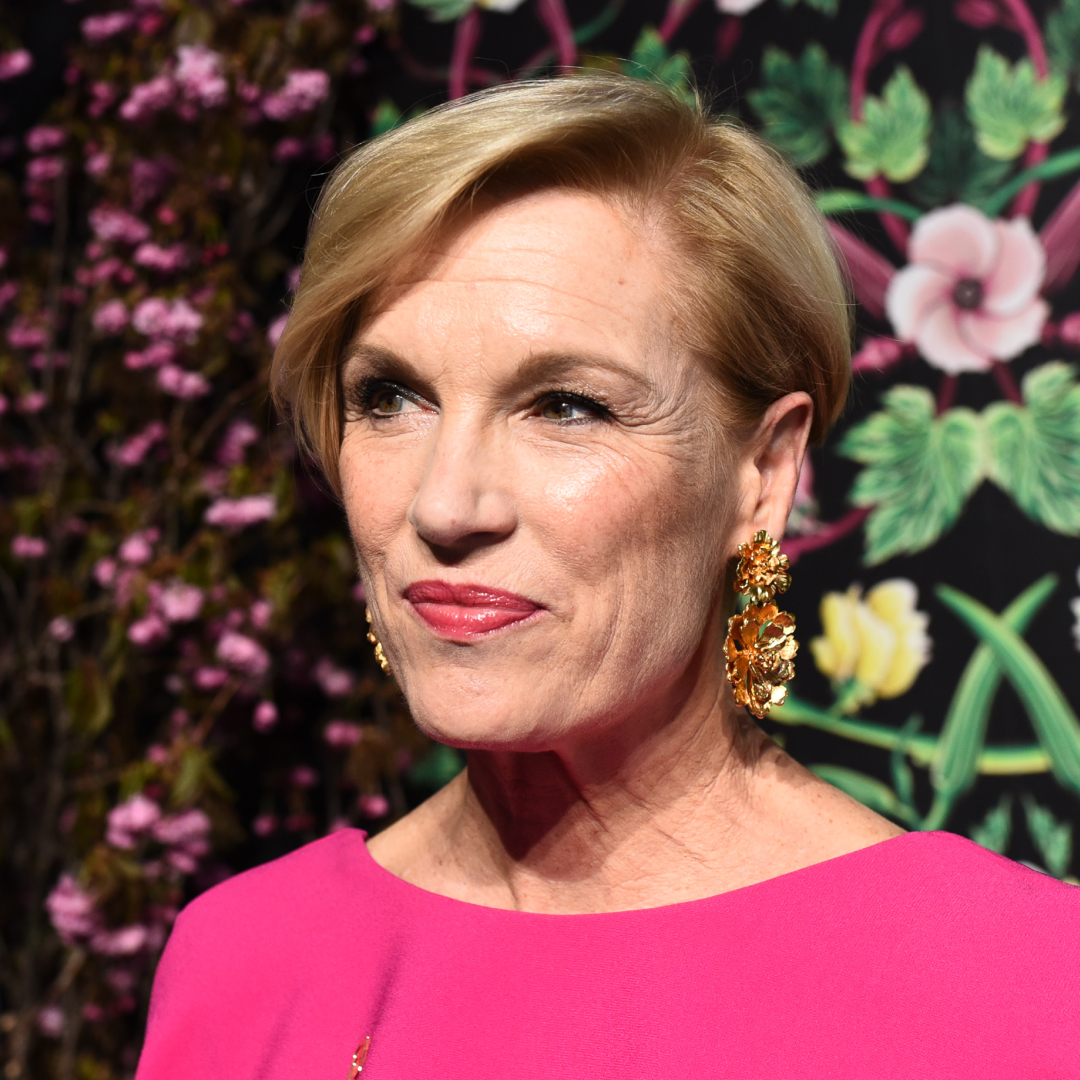 Cecile Richards, Former Planned Parenthood President and Women's Rights Activist, Has Died at Age 67
Cecile Richards, Former Planned Parenthood President and Women's Rights Activist, Has Died at Age 67"Our hearts are broken today but no words can do justice to the joy she brought to our lives."
By Amy Mackelden Published
-
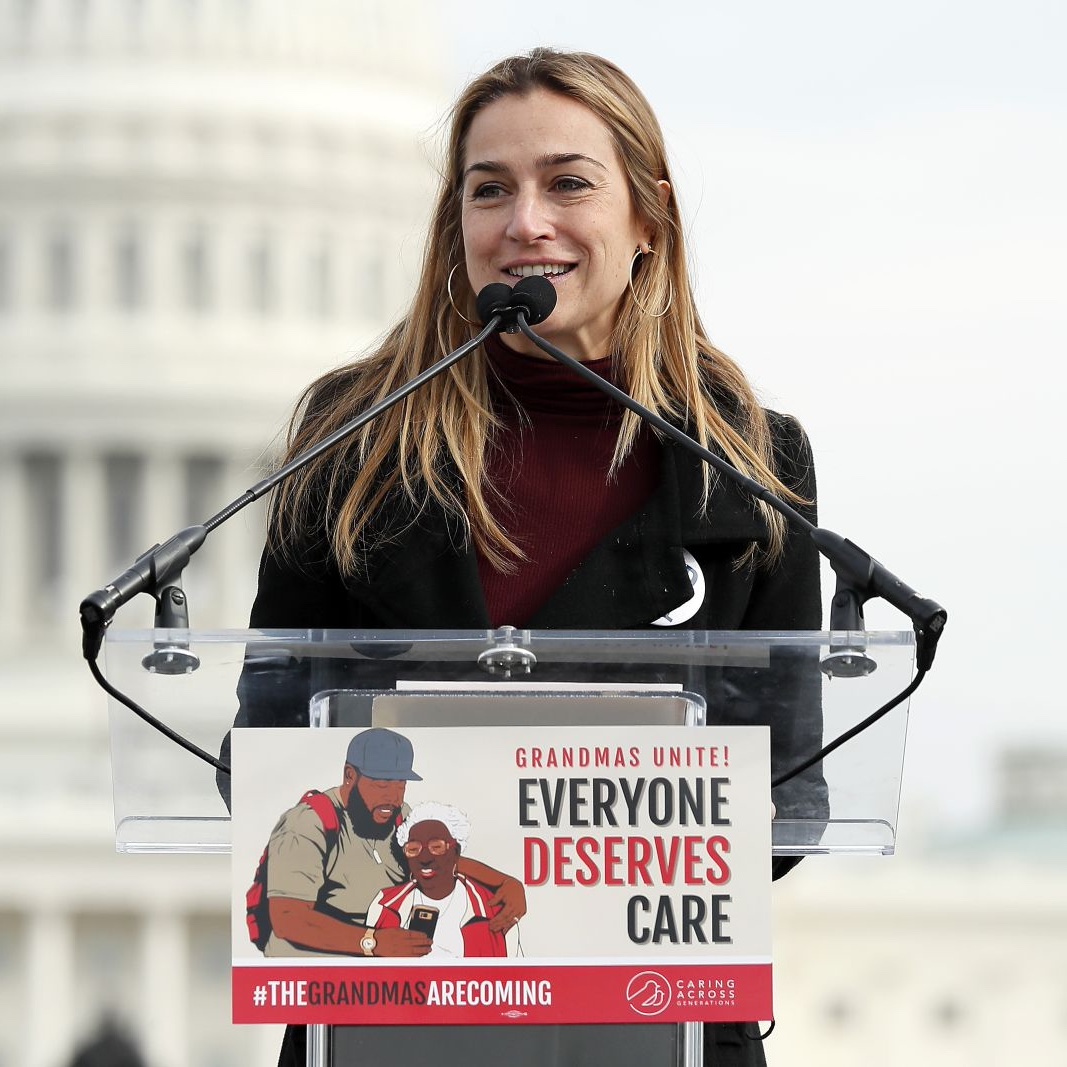 What's the Holdup in Biden's Push for Paid Leave?
What's the Holdup in Biden's Push for Paid Leave?The president is proposing $325 billion to fund paid family leave—the strongest budget proposal in history—and pushing for free universal pre-K nationwide. But he faces opposition.
By Dawn Huckelbridge Published
-
 What's at Stake in the 2022 Midterm Elections
What's at Stake in the 2022 Midterm ElectionsWith abortion rights, democracy, and many more critical issues on the ballot, there’s no room for apathy this election cycle.
By Rachel Epstein Published
-
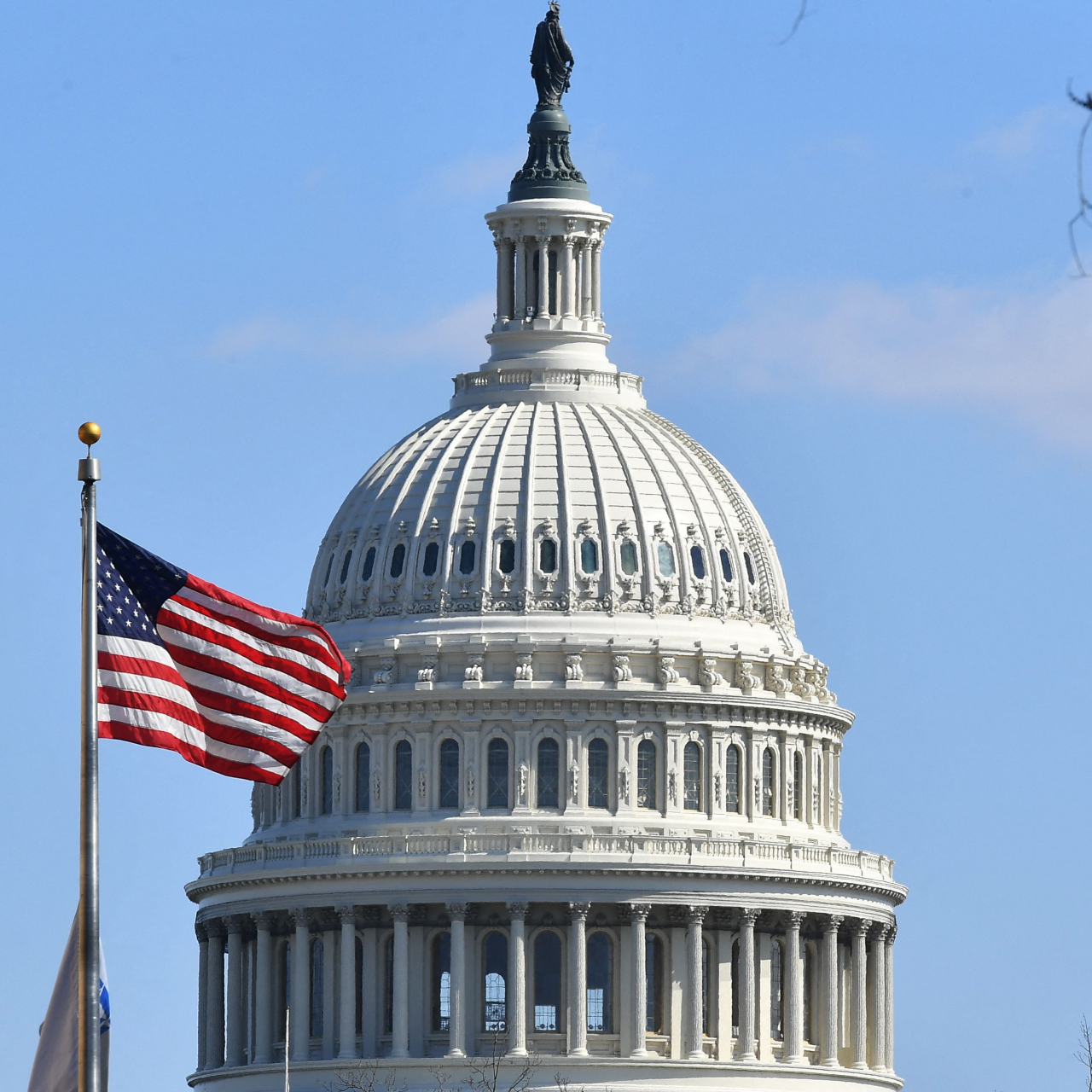 The 2022 Midterm Elections: What to Know Ahead of Election Day
The 2022 Midterm Elections: What to Know Ahead of Election DayConsider this your guide to key races, important dates, and more.
By Rachel Epstein Published
-
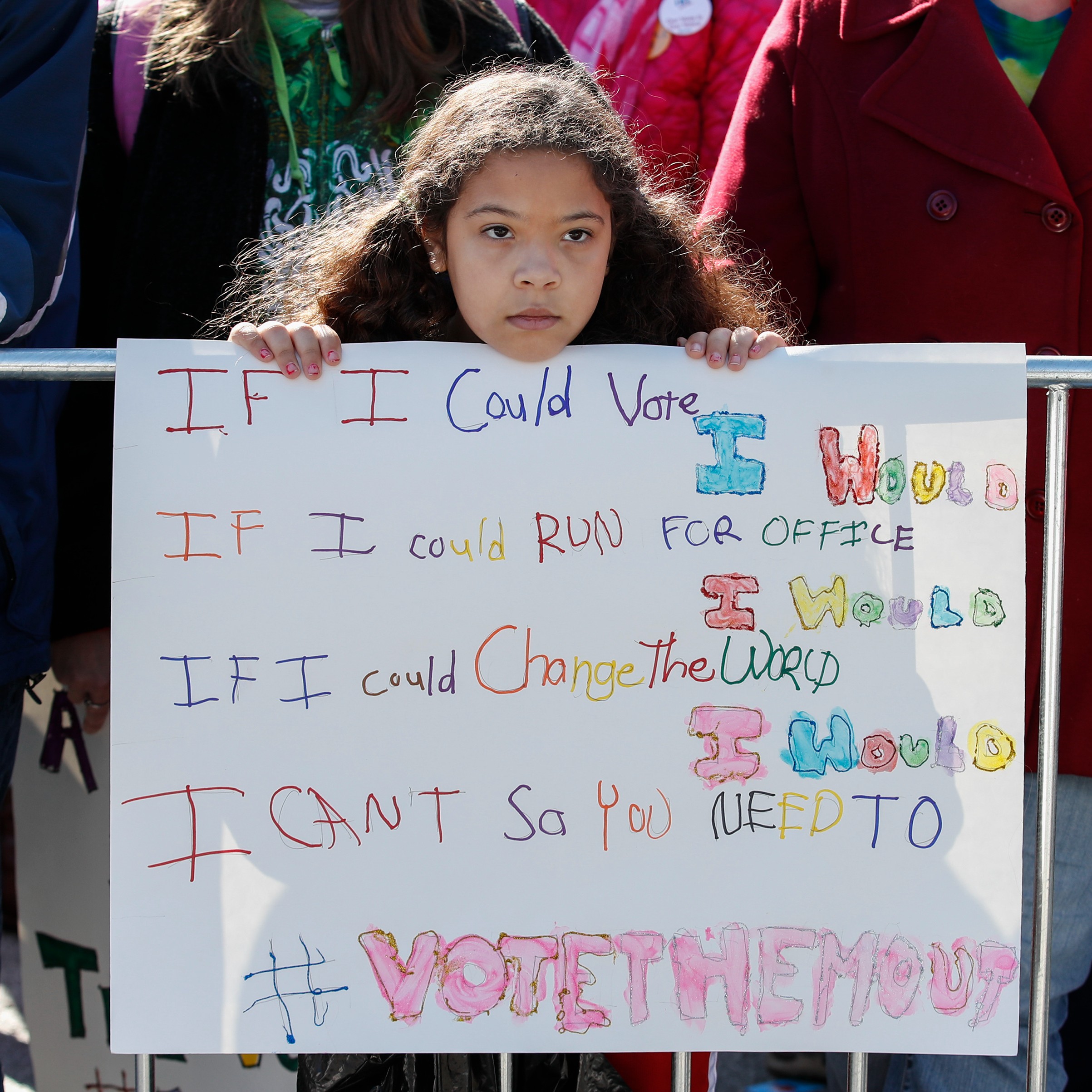 4 Ways Your Rights Are on the Ballot This Election
4 Ways Your Rights Are on the Ballot This ElectionAccording to Vice President Kamala Harris.
By Emily Tisch Sussman Published
-
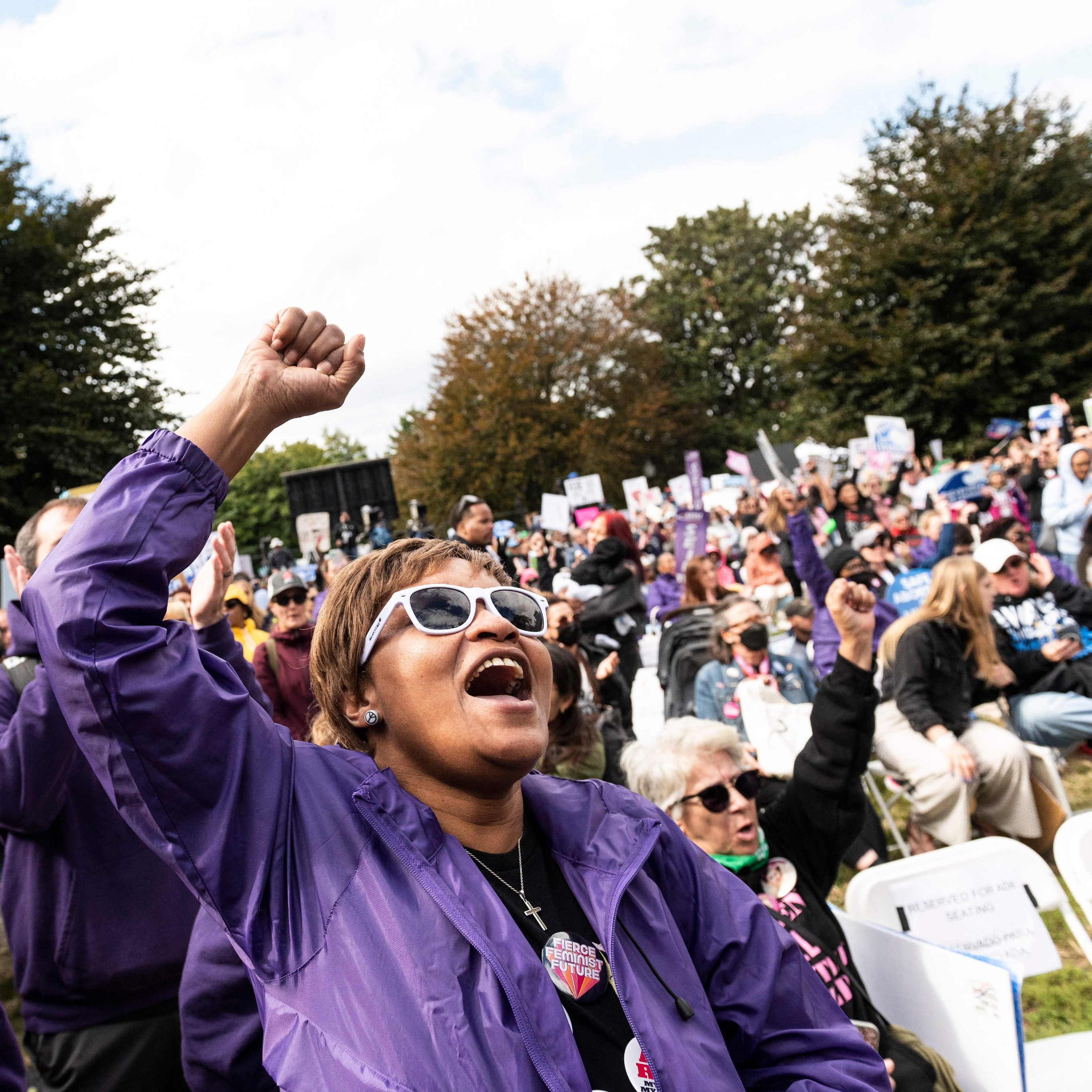 Moms Will Make the Difference in the Midterm Elections
Moms Will Make the Difference in the Midterm ElectionsA plethora of issues impacting women and children will be top of mind for moms as they head to the polls this November.
By Emily Tisch Sussman Last updated
-
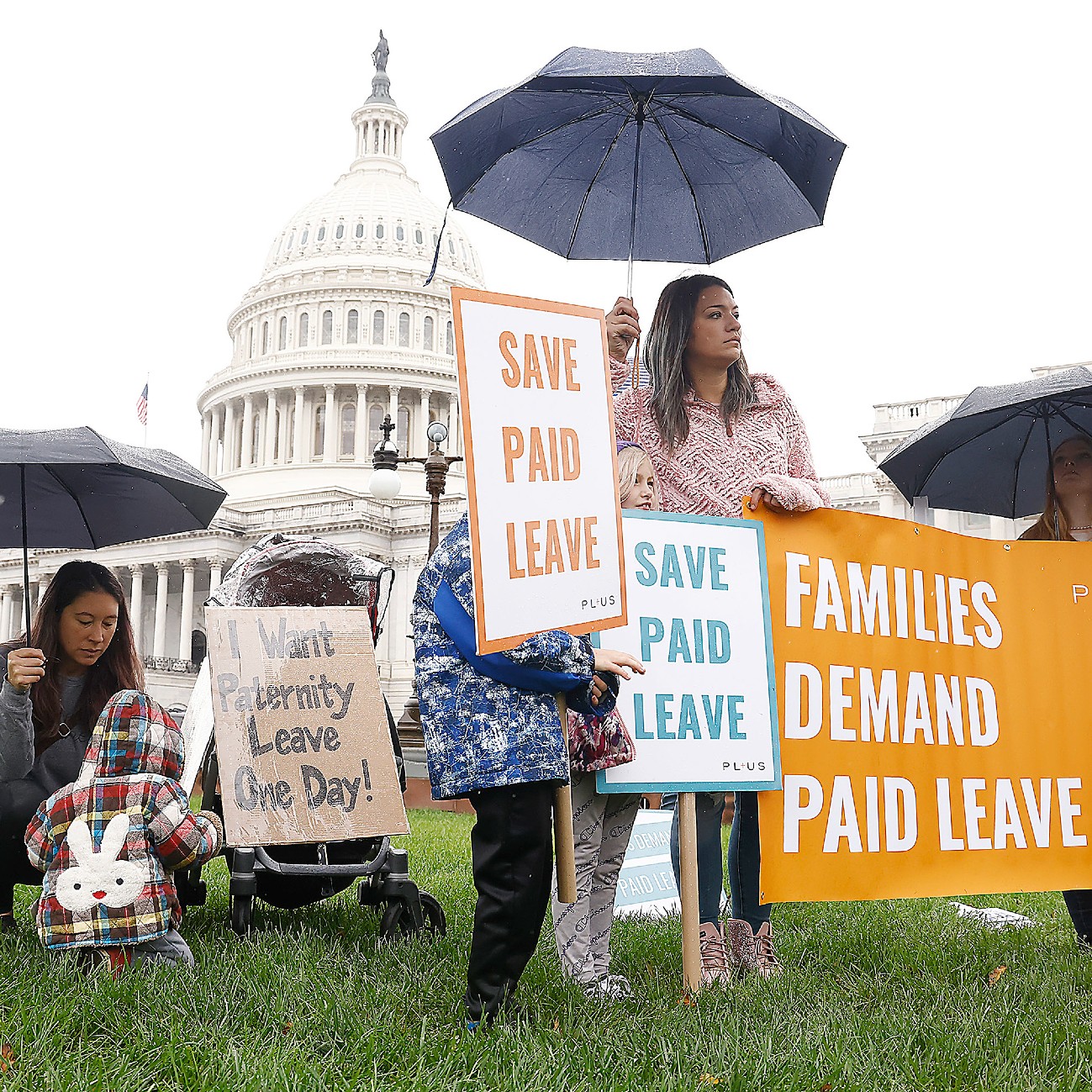 What You Need to Know About Paid Leave Before the Midterms
What You Need to Know About Paid Leave Before the MidtermsEarlier this year, a rare opportunity to finally fill the holes in our care infrastructure wasn't taken. But the leader of the new Paid Leave PAC is here to tell you it’s not over.
By Tanya Benedicto Klich Last updated
-
 The Secret to Having \201cIt All\201d? A Society That Actually Supports Women
The Secret to Having \201cIt All\201d? A Society That Actually Supports WomenWhen asked how I \201chave it all,\201d I often cite my own hard work. But the truth is I had access to certain rights and privileges that are now under more attack than ever.
By Jo Piazza Published
